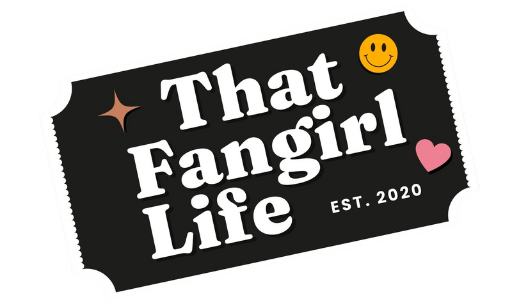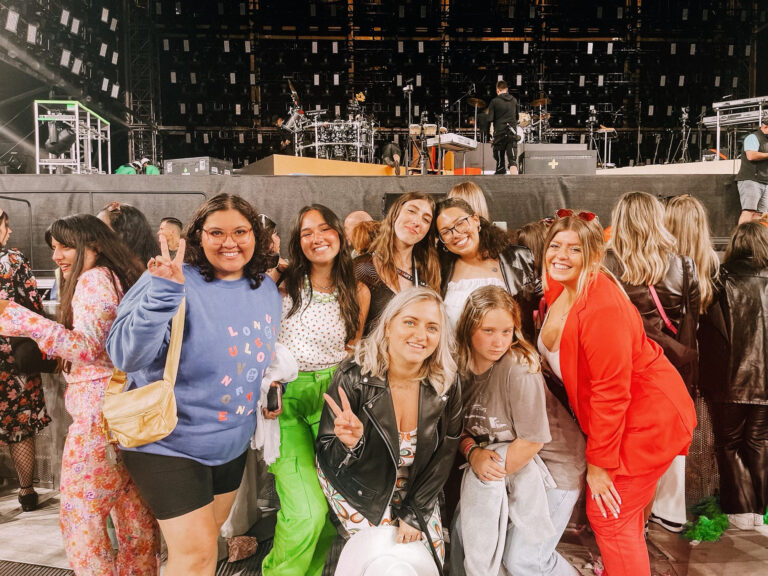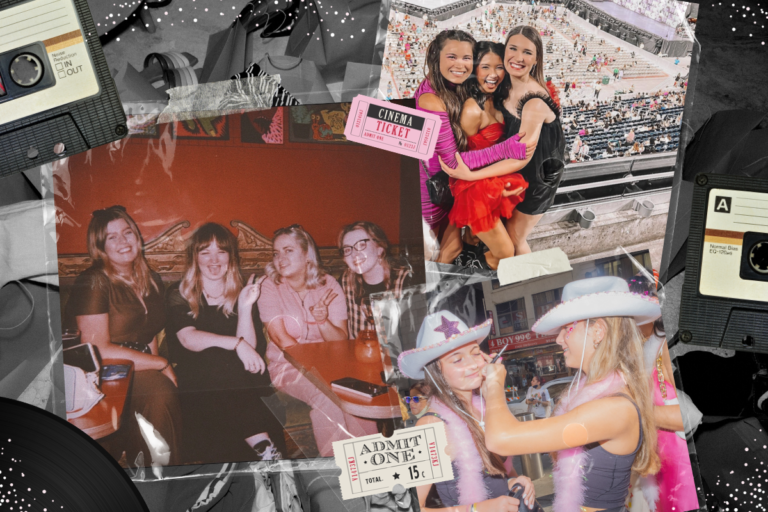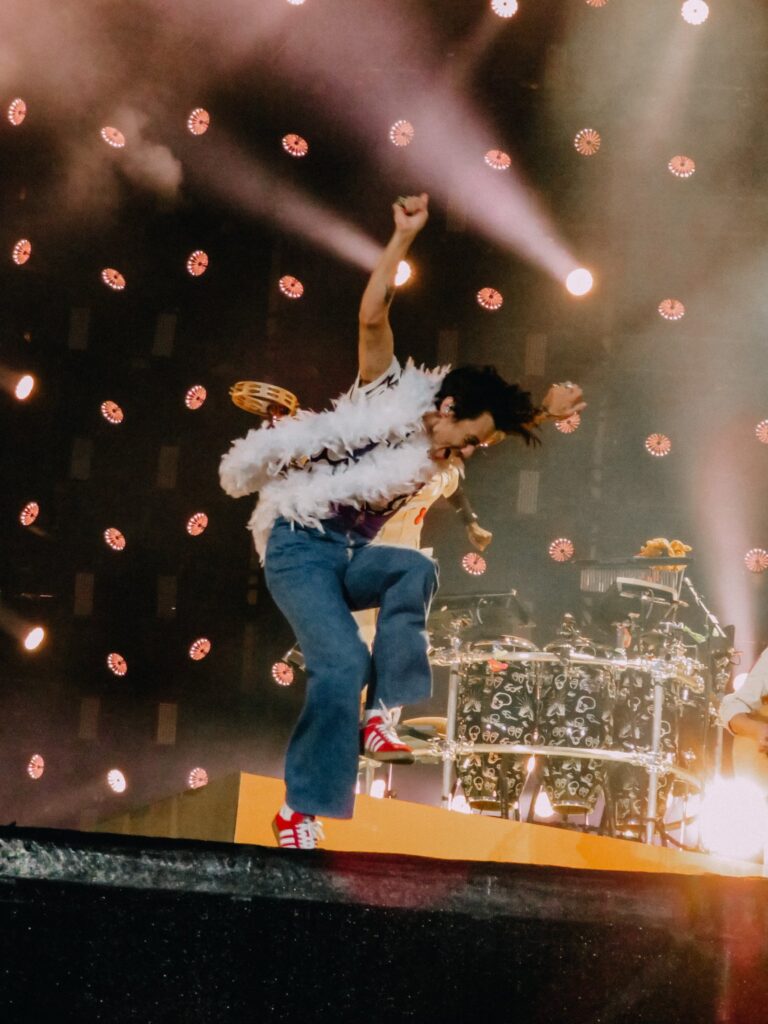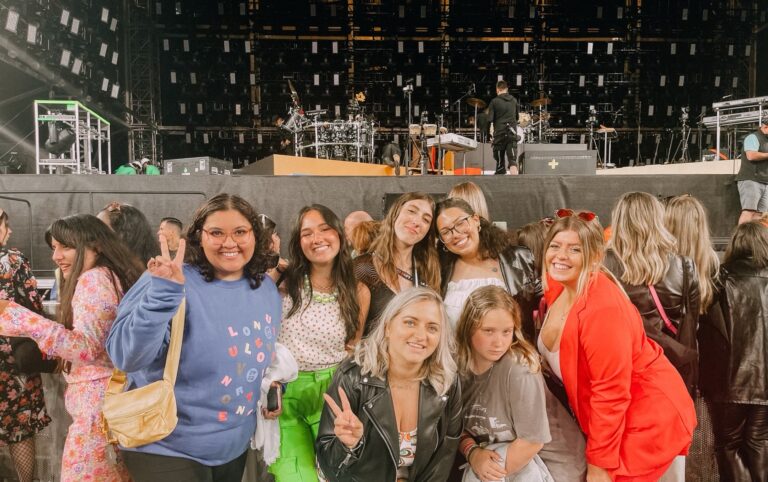Fandom & Feminism: The Power of Being A Fangirl

Feminism. We’ve heard the term used repeatedly in politics and popular culture. What does it truly mean? By definition, feminism is “the advocacy of women’s rights on the basis of the equality of the sexes.” With that in mind, it should simplify it to one word: equal. However, we’ve learned over the years that it can never be that one-dimensional. With equality comes power and self-assurance. For some of us, we find that in our passions. What happens when those passions are discredited or even mocked? What can we do to take that power back?
The Stigma of the Fangirl
If one of your passions is being a fangirl, you may have found yourself on the wrong end of various conversations. You may have felt as though many were talking down to you, judging you, or trying to make you feel ashamed of your hobbies. In a sense, it takes away that power and self-assurance that being a fangirl can really bring.
However, being part of a fandom can be extremely empowering. You are connecting with others who share a common interest and through social media or going to live events, you can form friendships and find a community. Then why does it seem so stigmatising to look someone in the eye and say, “I’m a fangirl!” Oftentimes, fangirls are seen as crazy, obsessed, or immature. Did you know that some even want to call us unwell?
Have you heard of Celebrity Worship Syndrome? We hadn’t either until it came across our FYP. According to the Newport Academy, CWS is an obsessive-addictive disorder in which an individual becomes excessively focused on the details of a celebrity. This study even broke the syndrome down into three different subtypes: Entertainment-social, Intense-Personal, and Borderline-Pathological. (“Connection Between Celebrity Worship Syndrome & Teen Mental Health”)
While we’ll never discredit a psychiatrist’s work, it feels rather dehumanising to think of it through this one perspective. It takes something like creating a fan page, which many do to show admiration for their favourite artist, connect with other fans, or express their creativity through things like fan art, and villanizes it using polarizing terms. It diminishes the term “fangirl” into something to be seen as twisted or lesser-than, when in reality – fangirls have more power than even they know.
Our Fangirl Powers
You may be asking, how does this tie into feminism? Being a fangirl reflects elements of representation, and creativity, and sheds light on female voices in popular culture. We’ll give you an example. What draws us to the media we consume? Relatability. When we can see ourselves or our story in movies, television shows, or song lyrics we’re going to form a stronger connection.
Whether it be about heartbreak, romance, or even loving ourselves – we’re represented in a world that typically overlooks us. Artists like Taylor Swift and blockbuster movies (Barbie, we’re looking at you) give us authentic portrayals of women, discuss real-life issues, and allow us to show our sensitivity that might typically be seen as weak or fragile. That is power. What we do with that power is even more special.
Along with that stigma comes the stereotype; they go hand-in-hand. On the surface, many may perceive it as shallow, mindless, or juvenile. What they don’t see is the critical engagement we have with entertainment and media. We have the ability to dig further than a plot line or a single lyric and find a deeper message. We can find excitement in what others might see as mundane. Most of all, we can bring empathy and compassion to a world that doesn’t show it to us.
By making these analyses and talking about them on social media platforms we can create change. We can demand attention to topics that affect us every single day. We can draw attention to the lack of diversity, to the objectification of women, or to the silencing of our voices. In media where women are dismissed or portrayed negatively, we can use our “little fan pages” to create discourse around the injustices and misinterpretations of the womanly experience. Pretty cool, right? We think so.
That’s why this may seem a little biased, but to us being a fangirl is a beautiful thing. Not only can we make a powerful impact on the world by continuing our fight against misogyny and misrepresentation… but it’s downright fun! It brings us joy in the darkness. It gives us a sense of belonging and allows us to show sides of us we might otherwise be afraid to. Being a fangirl helps shape popular culture and is an important part of the entertainment industry.
So, we say: don’t be afraid to be you. Go out and shine. Scream about your favourite artists and bands on social media. Buy the merch. Get the tickets – even if you have to fight Ticketmaster! Own being a fangirl and be ready to play a part in changing the world.
